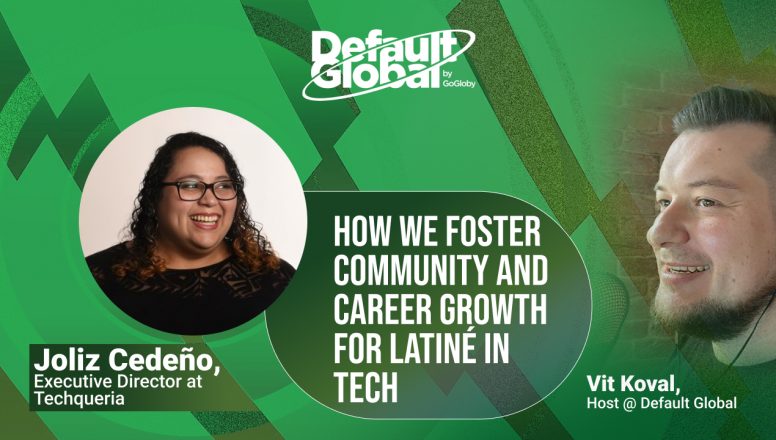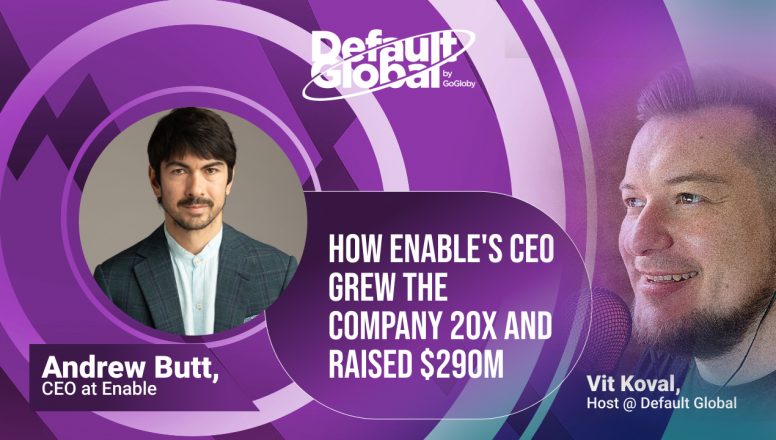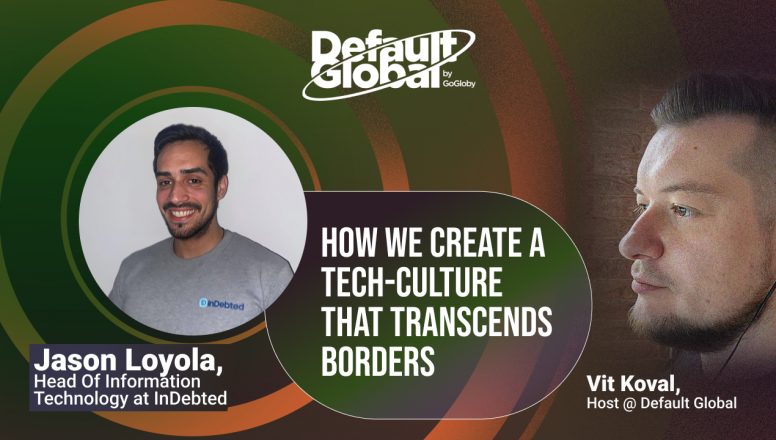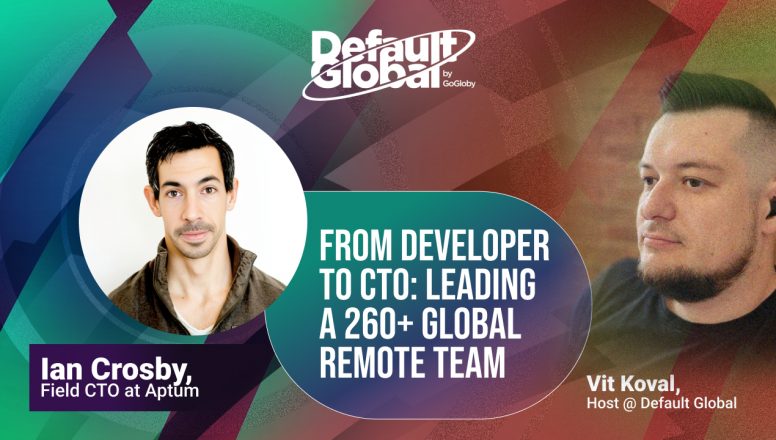Meet Siobhan McKeown, COO at Human Made:
Siobhan is the CEO of Human Made, a remote web development agency known for its hosting platform, Altis. With over 13 years of experience in remote work, Siobhan began her journey as a freelancer in 2010, working as a writer for various companies. She then joined the WordPress open-source project, contributing as an open-source contributor for a couple of years. Around seven to eight years ago, Siobhan joined Human Made, initially taking charge of organizing events before becoming the Director of People Operations. Eventually, she transitioned into the role of Chief Operating Officer (COO).
Siobhan’s expertise lies in growing, building, and nurturing remote teams, and she has a deep passion for remote work. In 2019, she published a book on remote work, delving into her experiences and exploring its impact on society. Human Made, which currently consists of around 70 individuals, operates without a physical head office, employing a fully remote work model across 24 countries worldwide. Siobhan’s commitment to working with remote teams stems from her love for the challenges and opportunities it presents.
Listen Up: Siobhan McKeown, COO at Human Made Full Podcast Episode on Spotify
Watch Now: The Art of Building a Global Culture of Kindness by Siobhan McKeown
Quick Read: Siobhan McKeown, COO at Human Made, Interview Highlights
Can you share some of the key strategies Human Made has implemented for efficient international hiring and probably for distributed team management?
Siobhan, the CEO of Human Made, highlights several key strategies for efficient international hiring and effective management of distributed teams. One important aspect is utilizing a recruitment tool that promotes autonomy and self-service, enabling hiring managers to lead the hiring process independently, regardless of time zones. Siobhan emphasizes the significance of setting clear expectations with hiring managers and establishing agreed-upon processes and responsibilities from the outset. In assessing candidates, Human Made employs various techniques to evaluate their remote work capabilities. Text interviews and email exchanges are used to gauge communication skills through written channels, which are crucial for remote work. Furthermore, building teams at different levels requires effective communication tools. Human Made utilizes Slack for synchronous interactions and general communication, while asynchronous communication takes place through GitHub and internal blogs. The company also fosters regional team cohesion and facilitates cross-time zone communication by creating small clusters of teams and employing company retreats and meetups to strengthen social bonds.
Siobhan states, “Being able to communicate through text is almost more important for some roles than being able to communicate through video or voice chat.” This underlines the significance of written communication skills in a remote work environment.
Efficient international hiring and successful distributed team management are achieved through the implementation of suitable recruitment tools, clear expectations, diverse assessment techniques, and effective communication platforms. By emphasizing autonomy, establishing processes, and leveraging various communication channels, companies can thrive in a remote work setting while building strong, globally dispersed teams.
Can you share some practical tips for fostering a culture of kindness in distributed teams across different time zones, cultures, and continents?
Siobhan emphasizes the importance of building awareness of cultural differences and fostering an environment where kindness can thrive in distributed teams spanning different time zones, cultures, and continents. While it may be challenging to be well-versed in the nuances of every culture represented in the company, acknowledging the existence of cultural differences is crucial. Siobhan suggests defaulting to assuming best intentions, recognizing that miscommunications or clashes may arise due to cultural differences rather than malicious intent. This mindset helps create a more understanding and empathetic atmosphere.
To cultivate a culture of kindness, Siobhan highlights the importance of creating space for open dialogue and encouraging questions. By normalizing a supportive environment where individuals feel comfortable seeking clarity, misunderstandings can be resolved, fostering a stronger team dynamic. Additionally, Siobhan mentions the significance of normalizing asynchronous communication, which allows individuals with different language backgrounds to engage more comfortably. By embracing various speeds and layers of communication, teams can cater to different communication preferences and ensure everyone feels included.
Addressing the challenges of different time zones, Siobhan emphasizes the importance of sharing accountability for accommodating varying work hours. While respecting individuals’ preferred working schedules, Human Made also shares the responsibility of staying up late or waking up early to accommodate team members in different time zones. This approach prevents burdening the same individuals repeatedly and promotes a fair distribution of accountability.
By building cultural awareness, assuming best intentions, fostering open communication, normalizing asynchronous communication, and sharing accountability for time zone challenges, distributed teams can create a culture of kindness and inclusivity that transcends geographical and cultural boundaries.
Can you elaborate on the concept of psychological safety and how it is fostered within your company for distributed teams? How do you create an environment where employees feel safe to take risks and be themselves?
Siobhan underscores the significance of psychological safety in creating an environment where employees can bring their whole selves to work, take risks, and foster innovation. To cultivate psychological safety within Human Made, Siobhan emphasizes the importance of fostering connections at a social level. While acknowledging the challenge of replicating in-person interactions in a remote setting, the company organizes virtual coffee breaks, social channels, and engaging activities like games to help individuals connect and see each other as more than just words on a screen.
Open and collaborative communication is also pivotal in creating psychological safety. Human Made conducts town halls that encourage everyone to ask and answer questions, fostering a collaborative environment rather than a top-down approach. All questions and perspectives are welcome, even those that may differ from the executive team’s views. Healthy conflict and open discussion are encouraged to promote diverse perspectives and collective growth.
Recognizing the importance of team stability and cohesion, Human Made is transitioning from a dynamic allocation model to a more static squad model. This change allows teams to form, establish clear roles, and develop trust and support, ultimately contributing to psychological safety within the company.
Addressing issues that arise is another crucial aspect of maintaining psychological safety. Human Made takes reported issues seriously and ensures they are addressed promptly. The company’s explicit code of conduct prohibits retaliation and emphasizes the importance of creating a safe and welcoming work environment.
By nurturing connections, promoting open communication, facilitating team stability, and addressing issues with seriousness and care, Human Made strives to foster psychological safety within their distributed teams. Creating an atmosphere where employees feel safe to express themselves, take risks, and collaborate ultimately leads to a more innovative and supportive work environment.
Could you provide insights into your company’s hiring practices, including how you select countries for hiring and evaluate candidates for your distributed teams?
Siobhan explains that Human Made’s hiring practices have evolved over time. Initially, their approach was to hire talent regardless of their location. However, as the company grew, they adopted a more intentional approach, considering specific regions and countries for hiring based on their expansion plans. For example, if they aim to grow in the Asia Pacific region, they would focus on countries like Japan, Singapore, or Australia. However, navigating hiring practices that vary across countries poses a challenge, as it is impractical to have in-depth knowledge of every hiring process globally. Despite this challenge, Human Made has successfully hired remote talent from various regions.
Siobhan emphasizes the importance of considering cultural differences throughout the hiring process. Different countries may have distinct hierarchical structures and communication styles, which can influence how candidates perform and interact during interviews. To account for these differences, Human Made employs various assessment mechanisms to evaluate candidates’ technical skills and communication abilities. They assess candidates through written communication, verbal speaking, and other means to ensure a comprehensive evaluation.
While there may be a learning curve and challenges associated with hiring practices in different countries, Human Made remains committed to selecting talent based on their skills and fit for the company. They continually refine their hiring approach and consider the cultural nuances and regional contexts when evaluating candidates for their distributed teams.
Siobhan states, “Our approach originally was just like, it doesn’t matter where you are, we’ll hire you. That was just our approach. And obviously, then we had to, you know, we’re not we don’t have we can’t employ everybody that we work with so often. We have contractors like many remote companies, a blend of employees and contractors and other sort of mechanisms for recruiting people.”
How does Human Made manage compliance when hiring and managing employees across various countries?
Siobhan shared that the company is incorporated in the United Kingdom, the United States, and Australia, with branch offices and contractors contributing to their diverse workforce.
Siobhan acknowledged the evolving nature of compliance and the intricacies it presents. She emphasized the company’s commitment to ensuring that all employees, regardless of their location or employment status, receive equal treatment and benefits. Siobhan stated, “We want everyone at the company to feel the same, to have the same experience, and to feel like they’re going to have the same protections and benefits as everybody else.”
To achieve this, Human Made strives for parity across all contracts and legal entities. They develop policies that align with compliance requirements while maintaining fairness. Siobhan explained, “When we’re writing contracts, we’re trying to create parity across all of our contracts and all of our different legal entities.” This approach allows the company to provide a consistent experience to their globally distributed team.
However, Siobhan acknowledged that there are challenges in replicating certain benefits across different countries. For instance, while the United States offers healthcare coverage to everyone, Human Made offers healthcare to those who don’t have access to a national health service. Similarly, the pension system in Australia, known as superannuation, involves a substantial contribution of 21 percent of salaries, which the company cannot match. Siobhan highlighted the need for pragmatism while ensuring compliance and equity.
What is Human Made’s unique approach to team building and creating a sense of community?
Siobhan acknowledged the difficulties they encountered, especially since the pandemic highlighted their reliance on in-person interactions. The absence of annual company retreats, meetups, and involvement in the WordPress community significantly impacted their ability to connect as a team.
Human Made proactively sought alternative ways to nurture relationships and strengthen their virtual community in response to these challenges. Siobhan mentioned the introduction of virtual coffees, virtual retreats, and the resumption of company retreats as measures to rebuild a sense of connection. Attending events and creating a strong sense of company identity were also important factors.
Siobhan highlighted the significance of establishing a compelling company narrative that goes beyond mere employment. She emphasized, “You have to have something people want to be part of. Like they want to be part of the story of the company, not just work there.” By fostering a sense of identity and purpose, even in a remote setting, Human Made aims to cultivate a greater sense of cohesion and engagement among their teammates.
However, Siobhan candidly admitted that maintaining a strong connection across different time zones poses challenges, particularly for those in the Asia-Pacific region. With the center of gravity for Human Made being in Europe, there is less activity and interaction during Asia-Pacific time zones. The company acknowledges this disparity and strives to address it through asynchronous communication methods and ongoing efforts to improve inclusivity and collaboration.
Siobhan also mentioned introducing static teams as another initiative to enhance team dynamics and foster a stronger sense of community. These teams provide a more stable framework for collaboration and support, enabling individuals to develop deeper connections and a greater sense of belonging.
What are some key considerations founders should consider before going global with remote work and hiring?
Siobhan’s first piece of advice is to recognize that remote work is not simply a matter of moving an office online. It requires a different approach and understanding. She asserts, “Remote work is not just taking your office and replicating it online… It’s a different volume.” While it may be possible to complete tasks remotely, true engagement and commitment from employees are essential for optimal performance. Founders should embrace the wealth of knowledge available from remote leaders who actively share their experiences through various channels, such as articles, podcasts, and books. Siobhan herself highlights her book, “Life Lived Remotely,” and recommends resources like “Remote Works” by Ali Green and Tamara Sanderson, as well as the GitLab handbook and Human Made’s public handbooks.
Siobhann’s second consideration revolves around the impact on employees. She emphasizes the importance of recognizing the challenges associated with remote work, such as the difficulty in establishing boundaries and combating isolation. Founders must prioritize addressing these issues by fostering a supportive culture and implementing appropriate processes within the company.
Lastly, Siobhan encourages founders to fully embrace remote work, emphasizing its potential as a significant advantage for both companies and employees. She emphasizes, “It can be a massive benefit to your company, to your employees.” Rather than considering it a burden, founders should actively educate themselves about remote work, leveraging available resources, and taking steps to implement it successfully.






